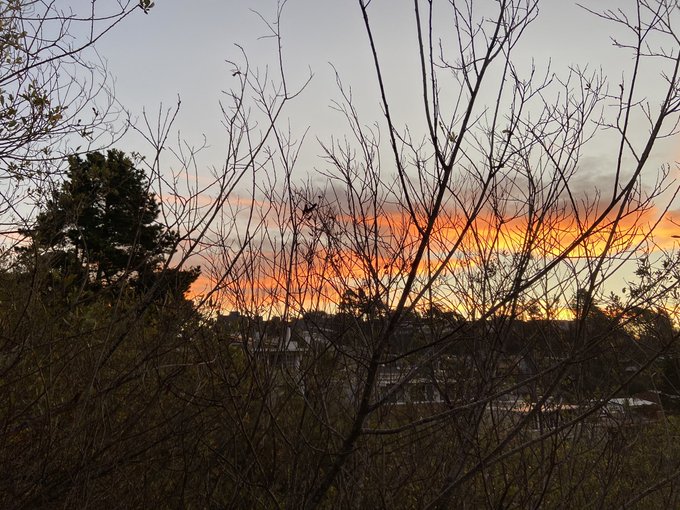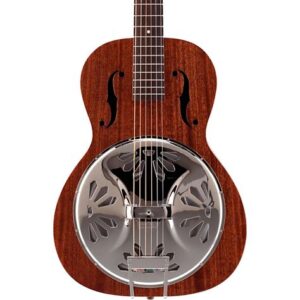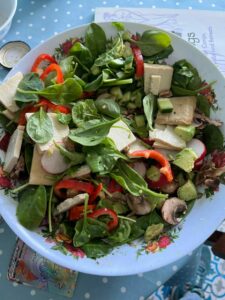
Back in July, when I wrote this, I was so touched to receive an enormous amount of support from friends and colleagues; my journey back to health was even featured in this Q&A piece, in which I said:
My health has deteriorated in a serious, serious way in the course of my work. I made a few key decisions during the pandemic, one of which was to put my health first, because that is what allows me to help other people. Of course, I’m speaking from an extremely fortunate place — I don’t have a loved one behind bars, my family is well, and academics largely kept our jobs.
At the same time, if you are fortunate, the temptation is to say, well, worrying about my stress is a bit precious and other people have it much worse. Which is of course true, but stress is real and it can kill you. There is a mounting pressure that results from having multiple conversations every day with people that are telling you about horrific things happening in the world. To keep your own resilience and your own little torch of hope lit so you can speak for them is extremely important.
I’ve taken steps to repair my health and it’s gotten much better. Now, I analyze: What is the optimal contribution I can make in this situation? Which contribution will advance the movement the farthest without making me sick or making my loved ones suffer? Talking for the sake of hearing yourself talk or having a clever soundbite on Twitter is not useful. This is not where the real suffering is happening, and it is not where the real improvement will happen. During the pandemic, many of us learned this is not where we will be of service.
I’m not Christian, but one of my favorite spiritual scriptures is the Prayer of St. Francis: “Lord, make me an instrument of thy peace.” I like to wake up and think, Okay, how can I be an instrument of God’s peace today? What’s the best way for me to do that, without my ego, my stuff, or infighting getting in the way?
COVID has exposed a lot of our failures — the problems in our educational systems, in our healthcare systems, the travesty of how we treat people in our prisons. We have also seen each other’s resilience and compassion.
At the turn of the new year, I got a “Season’s Greetings” postcard from prison on which someone wrote, “Thank you for being our voice. We so appreciate it.” I was happy that people inside know we are trying to help. But I also just thought about the fact that this person is living in what is essentially purgatory, yet he is still extending me kindness and grace. It’s absolutely stunning.
Many of the people leading this movement—for instance, in the Stop San Quentin Outbreak Coalition—have just been released. You would think a person getting out of prison would want to find a place to live, get a job, and start repairing their relationships. Some of these people have been out of society and away from their families for decades. But they immediately roll up their sleeves and work for the friends they left behind. How beautiful is that? You build on that work, and it helps you keep going.
Since I know many of us are on a similar path, trying to put their physical and mental health on an upward trajectory after several very difficult years, I thought I’d demystify my process in case it is helpful to others.
As Simon Hill shows in his new book The Proof Is In the Plants, a whole-foods, plant-based diet is optimal not only for your health, but for animal welfare and for our planet. I’ve been vegan for a long time, but in the last few years, what with the stresses of parenting, working full-time, and fighting the Trump Administration on the media almost as a full-time job, I slid toward relying on over-processed, starchy foods. In March 2021, when I awakened to the realization that I deserved a better life, I transitioned to eating exclusively whole foods. I now drink green juice or a smoothie for breakfast, eat a big salad for lunch, and a vegetable stew, soup, and/or stir-fry for dinner. For treats, I enjoy fruit, attractively sliced vegetables, and decaf green tea lattes on oat milk. I found out that I don’t need nearly as much food as I’d been eating. The return to working in person has made this a little more challenging, but it is doable with a bit of planning. We batch-cook beans, lentils, and grains on weekends, and use them during the week in various forms. I especially focus on consuming an enormous amount of leafy greens, which is very easy in smoothies, juices and salads.
The exercise journey started with a daily walk, and in many ways that’s still the foundation of what I do – I walk at least 10,000 steps a day. I gradually tacked on more things; in addition to walking/running every day, I now swim five times a week (Tue through Sat) in various city pools (I’ll sometimes walk to a distant pool and get my walking and swimming done that way) and cycle to work on an e-bike every day (Mon through Fri.) On Saturday I take a Pilates session, which has been complementary and informative, and on Sunday I usually go for a long run. I make my exercise regime a top priority of my day and never let a day pass without doing something, even though pool closures and weather sometimes require revising my plans. If it rains heavily and the pool is closed, I walk inside my house on a cheap mini-stairclimber.
Even though my time has become very limited with the return to in-person classes, I still meditate and listen to calming music before falling asleep. I don’t sleep much (who does with a little kid and a full-time job?) but I try to at least get some refreshing peace of mind in the form of religiously separating work life from home life. I aspire to stop working at 6pm daily and never work on weekends (despite being repeatedly pressured to do so, both directly and passive-aggressively.)
All of this eats a considerable chunk of my weekly schedule, as you can imagine, but I’ve come to see nutrition and exercise as essential steps for keeping the organism in good working order. When I fall off the wagon (a pox on you, Halloween candy!) I feel the consequences immediately, and it motivates me to get back on track.
As to the consequences: The flashier news are that I’ve lost 60 lbs, landing me at my high-school weight; dropped 30 points off my resting heart rate; boosted my good cholesterol and other markers, yielding spectacular bloodwork according to my doctor; and acquired a good muscle mass, agility, and flexibility, which has helped me improve in all the sports I do. Years ago, I used to swim marathons in open water; I found that multisport is kinder on my late-forties body, and my splits in the pool are as fast as they were when I was swimming for hours every day. A month ago I astonished myself with a 2:19:58 finish at a half-marathon. My weakest sport is still the bike, and I’ve had to start small–logging some time in the saddle by commuting on my beloved e-bike. The hope is that I can improve my fitness, and especially my cycling, enough to make myself proud next June at the Escape from Alcatraz Triathlon. But none of these things capture the most important aspect of health improvement, which is the constant, indescribable sensation of wellbeing that imbues my entire day. It is hard to overestimate the exquisite feeling of tackling one’s day with a body humming with healthy vibrations and free of malaise. I feel so good that I always want to feel this way, and I want this for everyone else, too.
As to the mental health piece of all this, it has been a real challenge tuning out some of the less savory aspects of higher education. In many ways this is a wonderful job for me, and the independence and flexibility are precious and valuable. But the climate of higher education has changed, introducing an enormous amount of administrative burdens, duties to contribute to a “shadow curriculum” beyond my areas of expertise, and panics and fears of upsetting or running afoul of campus orthodoxies, which rob me of my peace of mind. None of these trends show any signs of abating, and I have to come to terms with the fact that one of my most treasured aspects of the job–the freedom to say what I think and exchange ideas with people who can respectfully disagree–has eroded to a great degree. I try to remind myself that every job has its discontents and that, overall, I have been very fortunate in getting my career to a place where I can be of service to others, most recently our fellow Californians behind bars battling COVID-19, medical neglect, institutional ineptitude and political indifference. Finding peace and satisfaction at work is my ongoing project for 2022 and beyond, and I find that two things help enormously: being in my body and experiencing nature. These somatic experiences have a unique quality of cutting through intellectual noise and indulgent storytelling, as well as dissolving the ego piece of the whole thing, and provide even more motivation for keeping the exercise piece of the puzzle regular and fresh.
Some of the things that I have found inspiring and helpful on this journey are:
- experiencing sound meditations
- participating in an online sangha
- listening to the Rich Roll podcast
- during time crunches, getting my lunch salads delivered from Thistle or ordered at Mixt
- getting an expert shoe fitting for running at A Runner’s Mind
- revolutionizing my commute with VanMoof
- leak-free goggles from THEMAGIC5
- joining sports events organized by Mermaid Series and their supportive Facebook community
As I’ve mentioned before, if you are struggling with your own health and need a sounding board, hit me up. I’ll be happy to help you come up with a plan that works for you.




No comment yet, add your voice below!